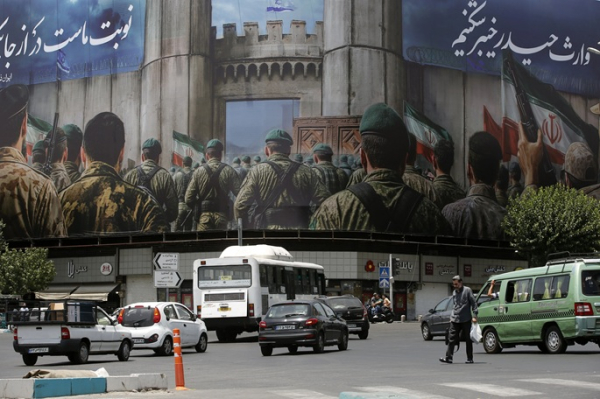
Iranian air defense forces on Tuesday night detected and shot down a number of micro aerial vehicles (MAVs) in the northern city of Rasht, reported Xinhua, quoting the semi-official Mehr news agency.
According to Gilan Province's Deputy Governor for Security and Law Enforcement Ali Bagheri, Rasht were attacked by "invading" MAVs. He did not specify whether the unmanned aircraft belonged to Israel or not.
On June 13, Israel launched major airstrikes on different areas in Iran, including nuclear and military sites, killing several senior commanders, nuclear scientists, and civilians. Iran responded by launching several waves of missile and drone attacks on Israel, inflicting casualties and damage.
A ceasefire was declared between the two sides on Tuesday.
Meanwhile, Israeli warplanes struck a radar system in Iran on Tuesday, Israel's Army Radio reported, hours after a ceasefire agreement intended to end a 12-day war came into effect, said Xinhua.
Earlier, Israel said it had identified missiles from Iran hours into the ceasefire. Iran also reported that Israeli missiles had struck its territory about 90 minutes into the ceasefire.
While the Iranian missiles reportedly caused no injuries, they drew swift condemnation from Israel. "In light of the severe violation of the ceasefire … we will respond with force," Israel's Chief of the General Staff Eyal Zamir said following a situational assessment.
Defense Minister Israel Katz said he had instructed the military to respond with "high-intensity strikes against regime targets in the heart of Tehran."
As Israel claimed attack on Iran's radar system, Iran's semi-official Fars news agency reported that an explosion sound was heard in Iran's northern city of Babolsar in Mazandaran province, and ambulances and rescuers are en route to the scene.
U.S. President Donald Trump, who announced the ceasefire, criticized both sides for breaching the truce and urged Israel to show restraint. "They both violated the ceasefire," Trump said as he departed the White House.
In a statement released later, Israeli Prime Minister Benjamin Netanyahu said that following his talk with Trump, "Israel has refrained from carrying out further attacks."
Meanwhile, Israel lifted nationwide emergency restrictions on Tuesday evening, signaling a cautious return to normalcy after a fragile ceasefire with Iran took hold, ending nearly two weeks of intense cross-border attacks.
The decision came as Israeli officials assessed the aftermath of the 12-day war, which left dozens dead and over 1,000 wounded, while military leaders warned that despite a pause in fighting, the broader campaign against Iran and its allies was far from over.
Israel's Home Front Command announced in a statement that the cancellation of the restrictions, which took effect at 8 p.m. local time (1700 GMT), allows all regions of the country to resume full civilian activity, including the reopening of schools, workplaces, and public gatherings. Communities adjacent to the Gaza Strip will remain under guidelines allowing gatherings of up to 2,000 people.
The easing of restrictions marks a tentative sign that the truce is holding after a shaky start, during which both countries accused each other of violating the terms by continuing to launch strikes. An Israeli surprise attack targeting military sites and nuclear scientists across Iran on June 12 sparked the war.
Police said Tuesday that Iranian missile barrages had struck 52 locations across Israel during nearly two weeks of fighting. Eight of the attacks caused fatalities, killing one soldier and 27 civilians.
Magen David Adom, Israel's national rescue service, said 1,319 people were injured, including 17 seriously, 29 moderately, and 872 lightly. An additional 401 people were treated for anxiety.
Israel's Airports Authority said that Ben Gurion International Airport near Tel Aviv and a smaller airport in the northern city of Haifa had resumed full operations after periods of partial or total shutdown during the hostilities.
Israel Defense Forces Chief of Staff Eyal Zamir held a situational assessment with senior officers on Tuesday and warned that the conflict with Iran is far from over. "We have concluded a significant phase, but the campaign against Iran is not over," he said. "We are entering a new phase based on the achievements of the previous one."
He said that Israeli strikes on nuclear-related facilities and missile stockpiles "set Iran's nuclear project back by years," but stopped short of claiming the program had been dismantled, a key goal stated by Prime Minister Benjamin Netanyahu.
"The focus now shifts back to Gaza — to bring the hostages home and to dismantle the Hamas regime," Zamir added.
- Israel
- Iran
- Ceasefire
Source: www.dailyfinland.fi
